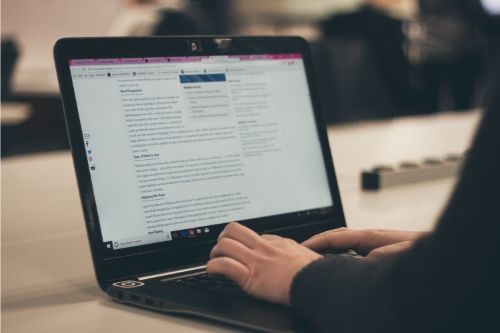
The purpose of Data Privacy Week is to make people aware of online privacy for individuals and organizations. As a public organization that champions data security, these commitments are what those we serve and those with whom we conduct business can expect from our organization:
Operation Xcel respects data privacy and safeguards the demographic and financial information of its participants, parents, sponsors, donors, and others with whom we interact to conduct business.
Operation Xcel will:
- not share your personal information without your express consent;
- not market information that you disclose to us; and we
- only collect data from you that is relevant and legitimate.
- Operation Xcel staff and contractors are committed to safeguarding our systems from unauthorized access by:
- securing our computers when we are away from our desks;
- using password security by multifactor verification methods and secure password vaults that require user authentication before logging into computers;
- not sharing login credentials with other Operation Xcel employees or persons with whom we conduct business
Indeed, you can't always control the collection of data related to you and your family. By using a few uncomplicated and repeatable behaviors, you can make strides in managing your data. Remember, your data is valuable, and you have the right to have a say in how it is used.
Your internet usage generates a significant amount of data. This data encompasses your likes, purchases, and online actions and is gathered by various websites, applications, devices, services, and companies worldwide. This data can also provide insights into your physical well-being, such as health information. For example, think about how a phone app may monitor the number of steps you take.
The National Cybersecurity Alliance (NCA) suggests multiple ways to protect your data privacy while using the internet.
1. It is important to be aware of the balance between privacy and convenience.
Understanding what you get for convenience and how that affects your privacy is paramount. Is it necessary that you share your personal information if you simply want to download an app to play a game? Think first before you share your geographic location, your contacts, or other personal information. Ask yourself:
- Is the service that you get in return for sharing your personal information worth the potential risk of the app developer selling your information?
- Is what you are getting (e.g., the app or game, service) worth how much and what kind of personal data they request?
- Can you use the service without sharing your location and other personally identifiable information?
- Is the app or service collecting or marketing your data even when you are not using the app or service?
Recommendation: Delete apps and services that you haven’t used in more than 30 days.
2. You can manage your privacy settings on every device, app, and service.
There is a way to manage your privacy settings for each device, application, and service that you use. Most are found under the ‘Settings’ section of the device, application, or service that you use. Here, you can set your privacy settings according to your comfort level regarding how much or how little personal information you share.
Click on this link to access some free resources that NCA provides to help you Manage Your Privacy. Settings for your accounts on social media, retail stores, apps, and more.
3. Safeguard your data by following NCA’s Core 4.
d. Learn how to identify phishing messages, which can be sent as emails, texts, or direct messages.
Useful Resources (each are 5-6 minute reads):
What is phishing? https://staysafeonline.org/theft-fraud-cybercrime/phishing/
What is Multifactor Identification (MFA)? https://staysafeonline.org/online-safety-privacy-basics/multi-factor-authentication/
How do I find and use Password Managers? https://staysafeonline.org/online-safety-privacy-basics/password-managers/
How to turn on automatic software updates? https://staysafeonline.org/resources/software-updates/

